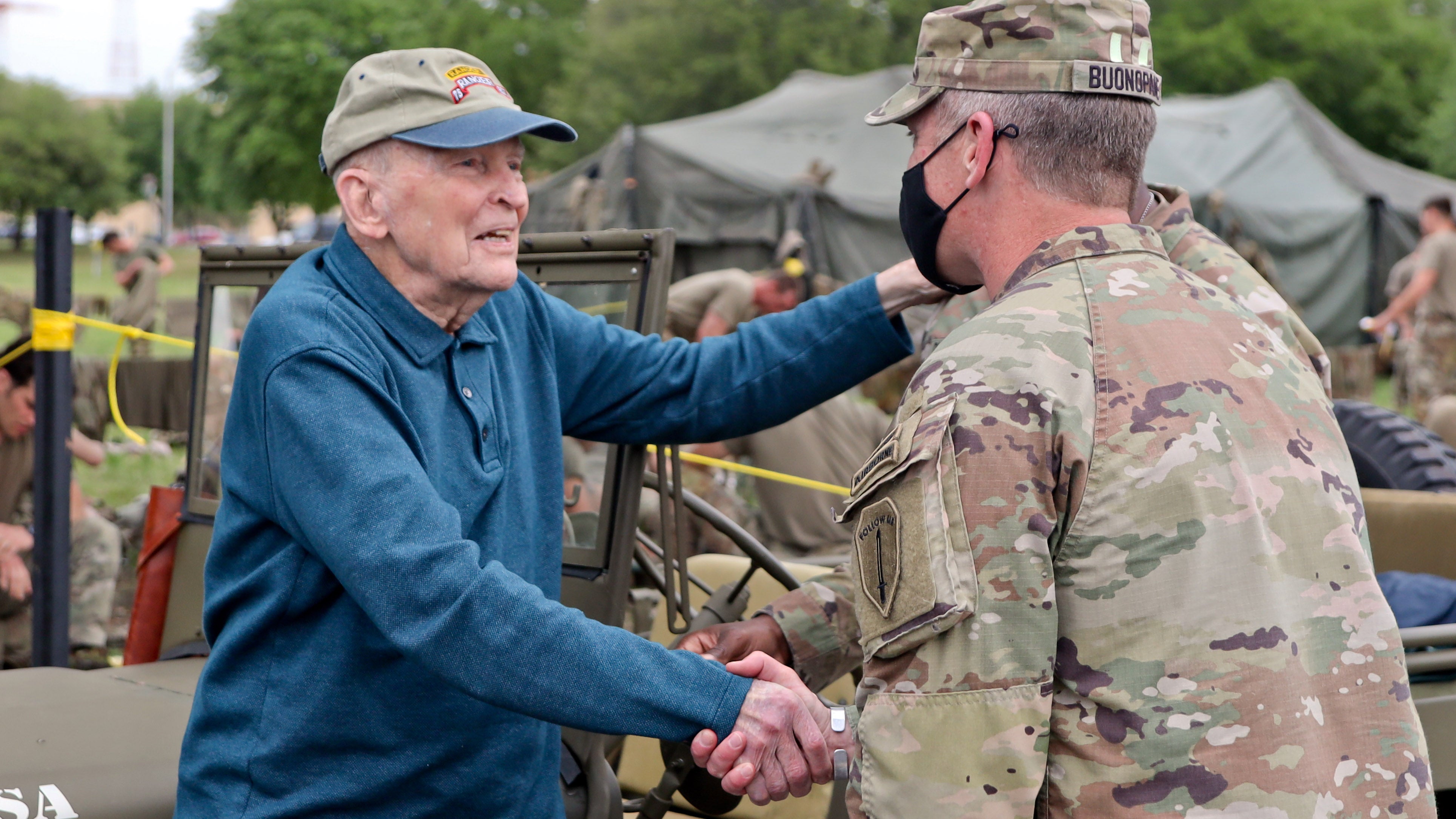Legendary Ranger to Receive Medal of Honor
Legendary Ranger to Receive Medal of Honor

More than 70 years after his heroic actions during a vicious battle in the Korean War, retired Col. Ralph Puckett will receive the Medal of Honor during a ceremony at the White House.
President Joe Biden will present the nation’s highest award for valor to Puckett, a legendary Army Ranger who is now 94, on May 21. South Korean President Moon Jae-in will also attend the ceremony, the White House announced May 19.
The award would make Puckett one of the most highly decorated soldiers in U.S. history.
Puckett is being honored for his actions on Nov. 25–26, 1960, when he was a first lieutenant and commander of the 8th Army Ranger Company.
When the soldiers began a daylight attack on Hill 205, they came under heavy enemy mortar, machine-gun and small-arms fire, according to the White House. “To obtain supporting fire, First Lieutenant Puckett mounted the closest tank, exposing himself to the deadly enemy fire,” the White House said.
“Leaping from the tank, he shouted words of encouragement to his men and began to lead the Rangers in the attack.”
Almost immediately, one platoon of Rangers was pinned down by enemy fire. Leaving the safety of his position, Puckett ran across an open area three times to draw enemy fire, allowing his fellow soldiers to find and destroy the enemy positions and seize Hill 205, according to the White House.
As the Rangers held the hill overnight, enemy fighters launched a counterattack that lasted four hours. Puckett continued to motivate his soldiers, and as a result, “five human wave attacks by a battalion strength enemy element were repulsed,” the White House said.
Puckett, who was wounded by grenade fragments, refused to be evacuated and continued to direct artillery support and repeatedly abandoned positions of relative safety to make his way from foxhole to foxhole to check on his troops, according to the White House.
When the enemy launched its sixth attack, two mortar rounds landed in Puckett’s foxhole, inflicting serious wounds that limited his mobility. At the same time, Puckett realized the soldiers’ position was “untenable” because supporting artillery fire was unavailable.
“Knowing his men were in a precarious situation, First Lieutenant Puckett commanded the Rangers to leave him behind and evacuate the area,” according to the White House.
But his Rangers refused. They instead moved to evacuate Puckett, while still under harassing fire from the enemy.
Once the soldiers were safely at the bottom of the hill, Puckett called for artillery fire on the top of the enemy-controlled hill.
Puckett enlisted in the Army in 1943 before being discharged two years later to attend the U.S. Military Academy at West Point, New York. He was commissioned as a second lieutenant in June 1949 and went on to serve in combat from August to November 1950 as a member of the 8th Army Ranger Company during the Korean War.
He also deployed to Vietnam in 1967 with the 101st Airborne Division.
Puckett would earn the Distinguished Service Cross for his actions that night in Korea. He would go on to earn a second Distinguished Service Cross and two Silver Stars for actions during the Vietnam War. He also received five Purple Hearts for wounds suffered in combat and two Bronze Star Medals with V device for valor.
Puckett retired from active duty in 1971, but he remained active within the Army community and was inducted into the Army Ranger Hall of Fame in 1992. He also served from 1996 to 2006 as the first Honorary Colonel of the 75th Ranger Regiment.

